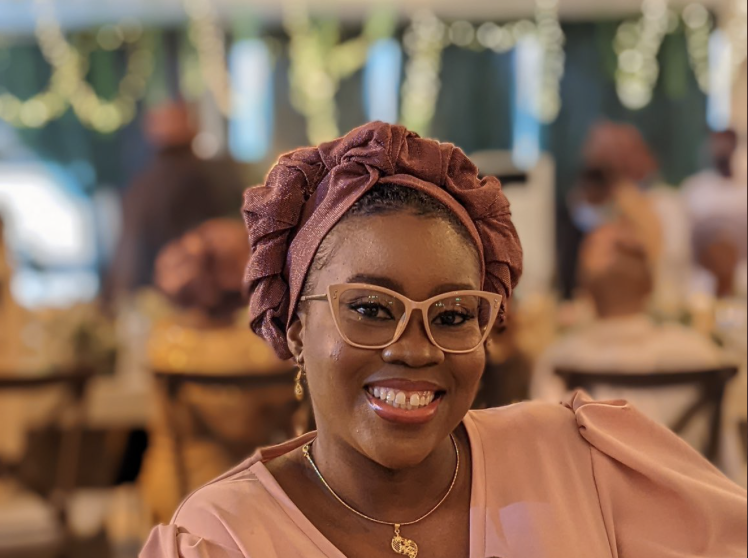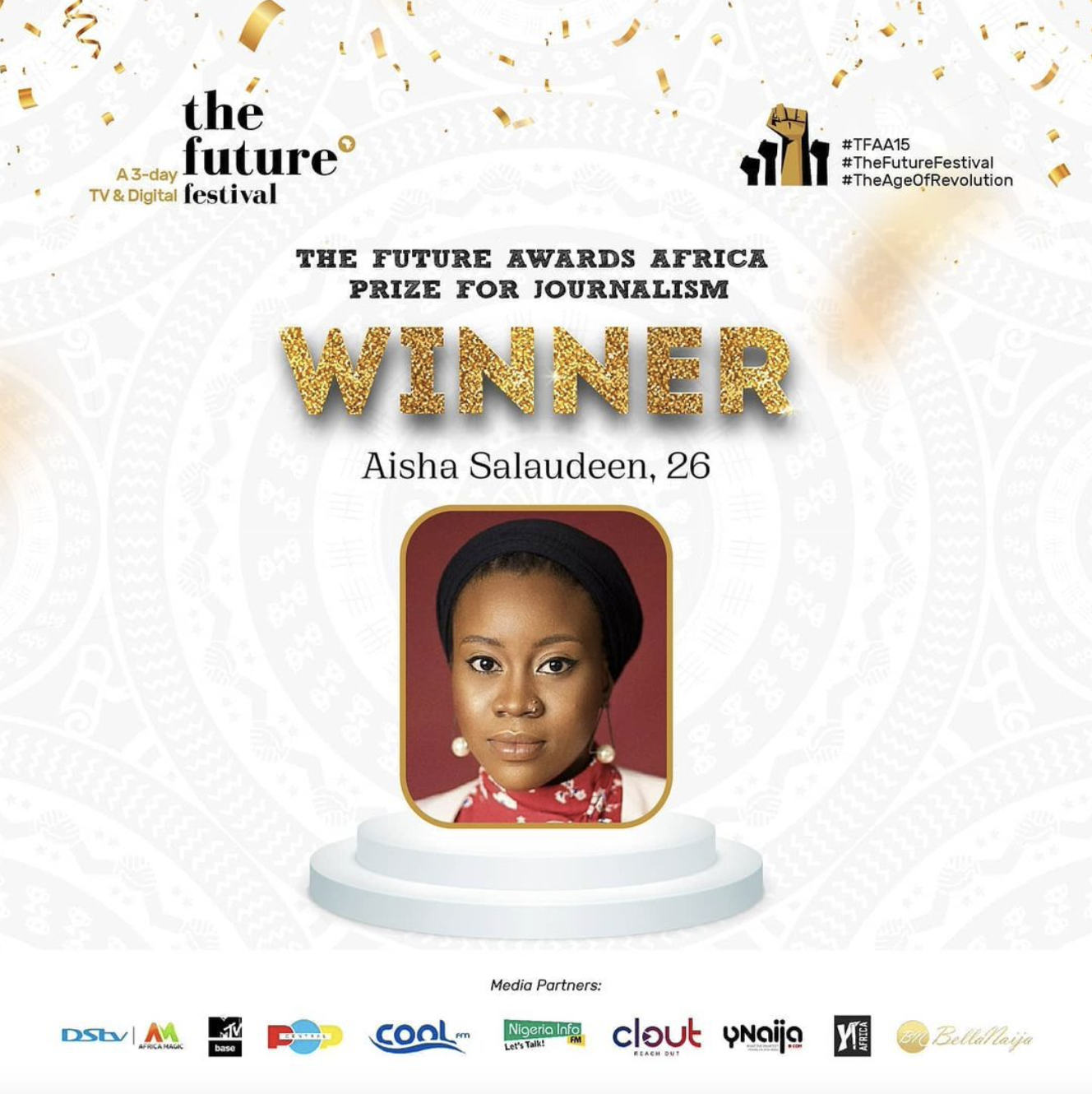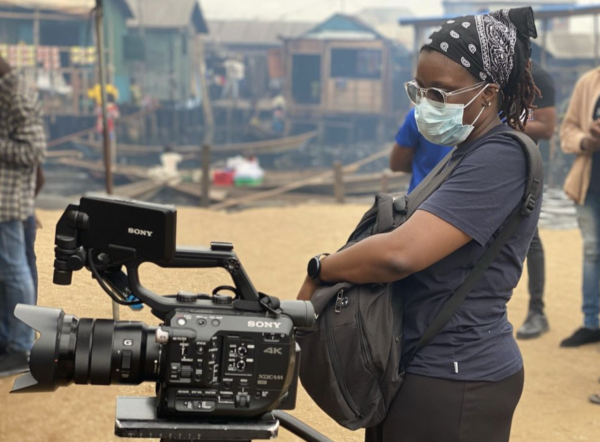Each week, frayintermedia highlights a journalist doing good work on the continent and honours them as our #FaveOfTheWeek. Meet award-winning Nigerian multimedia producer and storyteller Aisha Salaudeen who is passionate about Africans owning their narratives.

Q: How did you become a journalist?
I discovered my love for media and journalism when I was in university. I was actually studying for a BSc in business and economics. I joined my university school radio because a friend of mine was a newscaster on the radio, and I liked it. So I joined and soon after I realised that I loved being on the radio.
From being on the radio, I grew to write opinion pieces about the political events that were happening in Nigeria at the time, because I was in the UK and I thought it was important to write about how I felt, giving social commentary. I realised that whenever those articles were published in local media and newspapers, people would say that I can write.
And so that’s how I discovered that I was also a decent writer. There were so many events that happened from my BSc and my MSc days and getting other degrees in other related fields sort of brought me to finally decide that I’m going to be a journalist or at least I would be in the media space.
I think the most important thing or what stayed consistent or rather what stood out for me was that throughout my love for storytelling, when I was on the radio or writing articles, I knew that I loved talking to people and giving their stories. So that has been a major highlight of my journey into journalism.
Q: Why is a gendered perspective important in storytelling?
A: I think that a gendered perspective is very important in storytelling and when I say gendered, I mean specific to women. Women make up nearly 50% of the population and it’s very important to include these very women who are a large part of the society in our storytelling and our reporting.
To not do so would be to be dishonest because you are excluding millions of people from representation and a narrative that they are involved in. So, gendered storytelling is super important, especially if we are to be inclusive and if we are to tell the story of the world.
Honestly, you cannot exclude women in gender-sensitive reporting or gendered storytelling from journalism.
When we talk about women and women’s stories, women are often marginalised and discriminated against. Our stories barely make it to the news, when they do they are surface-level stories. The media is currently dominated by men. So it’s important to amplify the stories of these people who don’t often make it to the news, whose stories are often pushed to the side, and who are often discriminated against. It is important to continue to tell the stories, share their narratives and document their experiences because these experiences are being erased as far as we know.

And so gendered storytelling is something I always support and is super important in the way we tell stories.
Q: You’re a multimedia storyteller. How has the combined use of all these mediums contributed to how you look and tell stories?
I’ve always believed that there are multiple ways to tell a story. So being a multimedia storyteller just simply means now, when I look at this story, I always think of the various forms that that story can be told. So, for example, if I pick up the story and I can write an article, I can do a documentary, I can make you a video. I take it to the radio, I can do a podcast audio production.
So I think it just makes me very aware of multiple ways to tell stories. So I have one option where one medium is not working, I easily shift or move to the other form. So being a multimedia storyteller, in general, has just sort of helped me learn to tell stories better in various formats.
The options are limitless. I don’t have to be restricted to one form or the other. I can do and explore as many forms as possible to tell a story.
Q: What is the value of African journalists covering African issues and narratives?

A: I think it’s super important that Africans or African journalists cover issues and narratives that relate to the continent. Us Africans who live on the continent have better context of the happenings in Africa in the context of a story than someone else who doesn’t have any context, who’s never lived on our continent and is not African.
I’m a huge fan of Africans who tell their own stories. I don’t remember the exact saying but it goes something like “until the lion learns to tell its own story, the story will always glorify the hunter”. What that simply means is that Africans will continue to be seen in the lens of the West or anybody else, really, until and unless we take charge of our stories and tell our stories.
It’s our history, our context and our lifestyle. It’s important that we be the ones to tell it to avoid misrepresentation.

